The Digital Economy Navigator
2025 Edition is Live
A human-centric approach to digital economy maturity, identifying opportunities for countries, businesses and societies.
Read the 2025 reportThe Digital Economy Navigator (DEN) is a global assessment tool enabling countries to understand their level of digital economy maturity, find opportunities for growth, and benchmark progress over time.
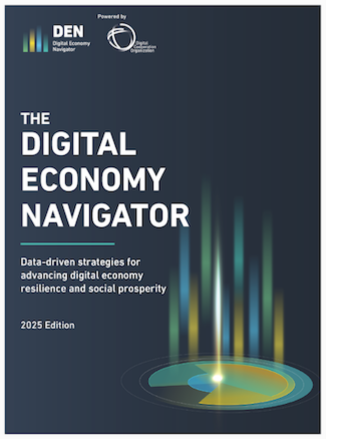 Launched in November 2025, the second edition of the DEN is a call to action for governments, businesses, individuals, multilateral institutions, and the global research community—to chart bold strategies, invest with foresight, and cooperate across borders.
Launched in November 2025, the second edition of the DEN is a call to action for governments, businesses, individuals, multilateral institutions, and the global research community—to chart bold strategies, invest with foresight, and cooperate across borders.
More about the DEN
Read DCOs 2025 DEN announcement
Read about the methodology
The digital economy's impact across countries and societies is profound and it offers significant opportunities for development and prosperity. Explore some of the key findings from the DEN 2025 report.
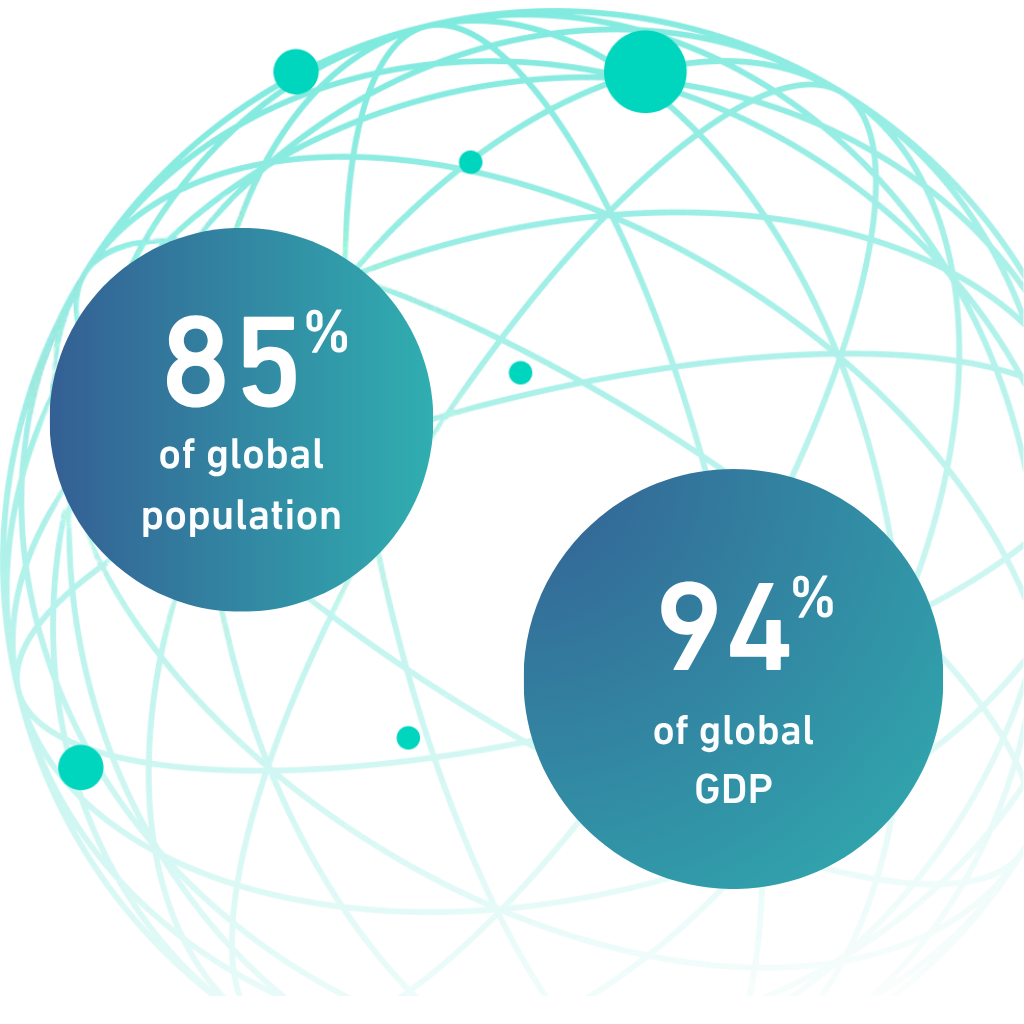


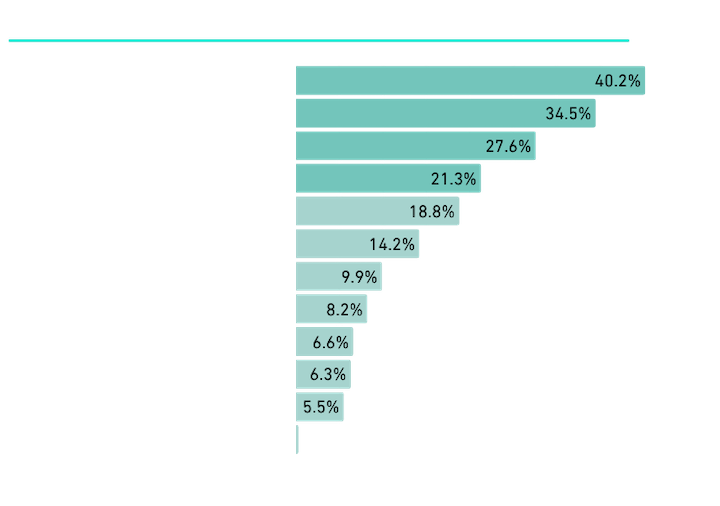




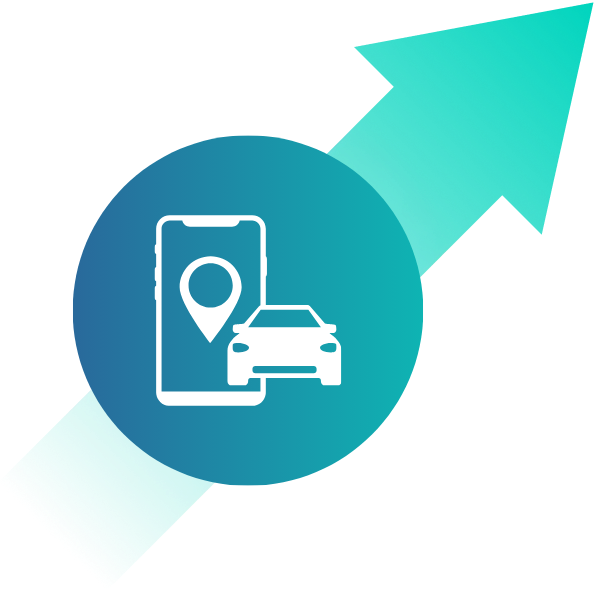





The DEN 2025 covers 80 countries across seven regions
Representing 85% of the global population and 94% of global GDP.

Digital divides are closing, but progress remains fragile
Gaps are narrowing fastest in infrastructure, skills, governance, and finance—areas that create a strong foundation for the future development of the digital economy.

Internet access reaches more than 80 % of people in DEN countries
Nearly all of those who are connected use digital platforms to stay in touch with family and friends, manage finances, and access health and education services.

Digital technologies are having a positive impact
DEN Survey respondents reported access to knowledge, banking and finance, and education, as well as social connections to be the areas where digital technologies had the most positive impact on their lives.

About 20 % of the working-age population
in the 80 countries covered by the DEN use digital tools and resources for work tasks every day indicating broad-ranging reach of the digital economy and a strong potential for further growth.

Lower-middle-income countries have made the greatest progress
The DEN 2025 research finds countries across all income level groups are proving that it is possible to climb the digital ladder and create opportunities for their populations, with lower-middle-income countries showing the greatest progress compared to the first edition of the DEN, 2024.

However, divides remain significant
People living in rural areas and lower-income countries, older generations, and women are all less likely to participate in the digital economy. Despite the strong benefits of being online, a lack of confidence in digital systems could undermine progress.

More than 33 % have online security and privacy concerns
The DEN 2025 survey respondents were most likely to identify online security and privacy concerns (33.2%) as their primary barrier, followed by a lack of trust in online financial services (21.7%). Survey respondents reported encountering a threat such as a virus or phishing on average every four months.

Men are 3 x more likely to specialize in ICT fields
Only about 3.1% of women graduates specialize in fields relating to information and communication technologies (ICT), compared with 9.6% of men, limiting women’s ability to participate in advanced digital jobs.

There is significant Untapped Market Potential
Digital banking, public transport and online doctor booking are the digital services areas with the biggest market potential, with estimates of more than 1 billion people in each.

Over 1 .3 bn people could benefit from digital banking
if they were connected to the internet. The digital economy around the world has strong potential for further growth if the right conditions are put in place.

From DEN survey 78 % using car-sharing apps
across 80 countries in the DEN. The success of the digital future will be shaped not only by speed and scale, but also by its sustainability.

From DEN survey 27 % report having advanced digital skills
highlighting a stark gap with the 69.6% of respondents who reported basic digital skills.

AI governance is an area for improvement
With cyber safety concerns on the rise, DEN data show that individuals are improving data protection skills in almost all countries—but also that more efforts are needed to prevent individual cyber incidents. As AI applications continue to be rapidly deployed, the DEN 2025 notes that AI governance remains an area for improvement in digital economy development.

Positive perception of AI
Despite concerns, more than half of DEN 2025 survey respondents felt AI was a positive force for their country's economy.

E-waste remains a pressing global challenge 11 .9 kg average e-waste produced
per person per year in DEN countries. The highest level recorded is in high-income countries (18.3kg).

The choices made today on connectivity, skills, trust, & sustainability matter
Actions today will decide whether the digital economy becomes a driver of shared prosperity or a source of deeper divides. The opportunities and risks of digitalization transcend national borders and regional and global cooperation is essential—through harmonized standards, shared best practices, and joint investments in infrastructure and skills.

Divides can be narrowed if societies work together
to make digital opportunities accessible, affordable, and trusted by all. The DCO is dedicated to enable digital prosperity for all. We call on global partners to expand the evidence base on the digital economy and to make an inclusive digital future not just an aspiration, but a measurable reality.

About the DEN Framework
To understand the range of factors, as well as how they interrelate to create an overall picture of digital economic maturity, the DEN looks through the lens of three dimensions comprising 11 pillars.
Digital Business captures private sector digital transformation and innovation:
Digital Business
- ICT Core Business measures production of hardware, software, telecommunication services, and the regulation of these core ICT sectors.
- Industry Digital Transformation measures uptake of digital inputs in traditional industries, from e-commerce to digital platform use, and related policies and regulations.
- Digital Innovation considers digital startup environments, research and development (R&D) and frontier research, and digital innovation regulations and policies.
Digital Enablers pillars focus on the foundations of a digital economy:
Digital Enablers
- Digital Infrastructure measures broadband coverage and connectivity speed, affordability, and data infrastructure.
- Digital Capabilities measures digital literacy, skills and talent, and digital privacy and cybersecurity capabilities.
- Digital Policy and Governance summarizes digital governance, digital public infrastructure and services, e-government operations, and cross-cutting digital regulation, policy and legal frameworks.
- Digital Finance measures financial system maturity, and access to and use of digital banking and payment systems.
Digital Society assesses technology’s impact on human wellbeing:
Digital Society
- Digital for Health and Education measures access to telehealth, and e-learning and related workforce capacities.
- Digital for Work and Training measures digital job creation, skills development, and gig-work environment.
- Digital for Social Inclusion measures civic engagement platforms, accessibility, and digital equity.
- Digital for Sustainability measures energy efficiency and e-waste, and the circular economy.
Methodology
The DEN 2025 includes 145 indicators, of which 92 are statistics obtained from secondary data sources and 53 are primary data indicators obtained from a proprietary online survey. This approach captures both quantitative and qualitative or behavioral facets of digital maturity.